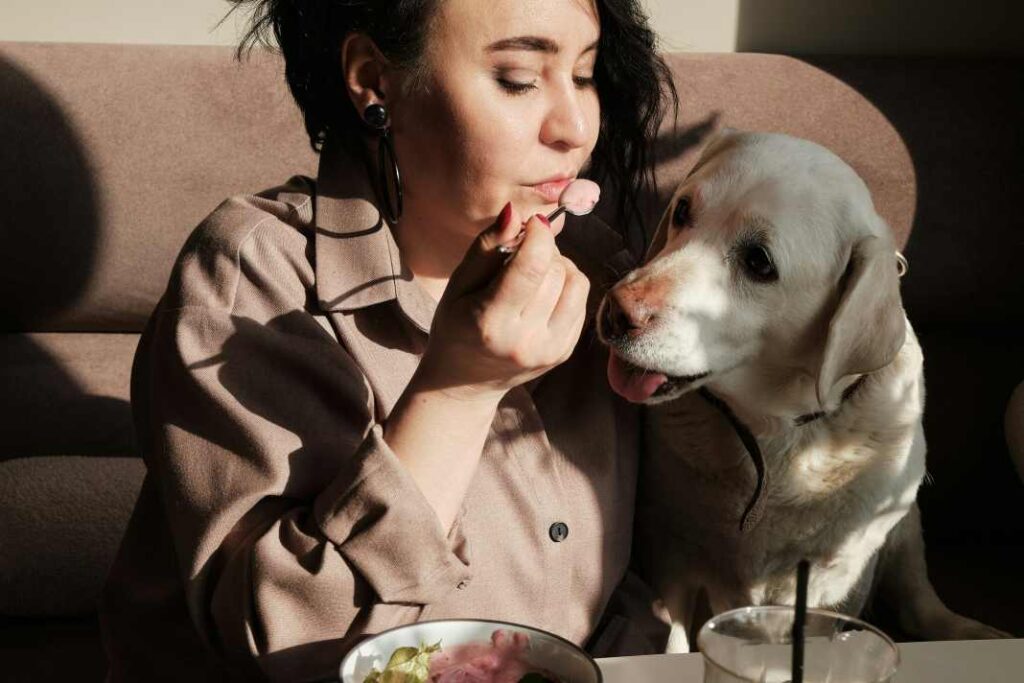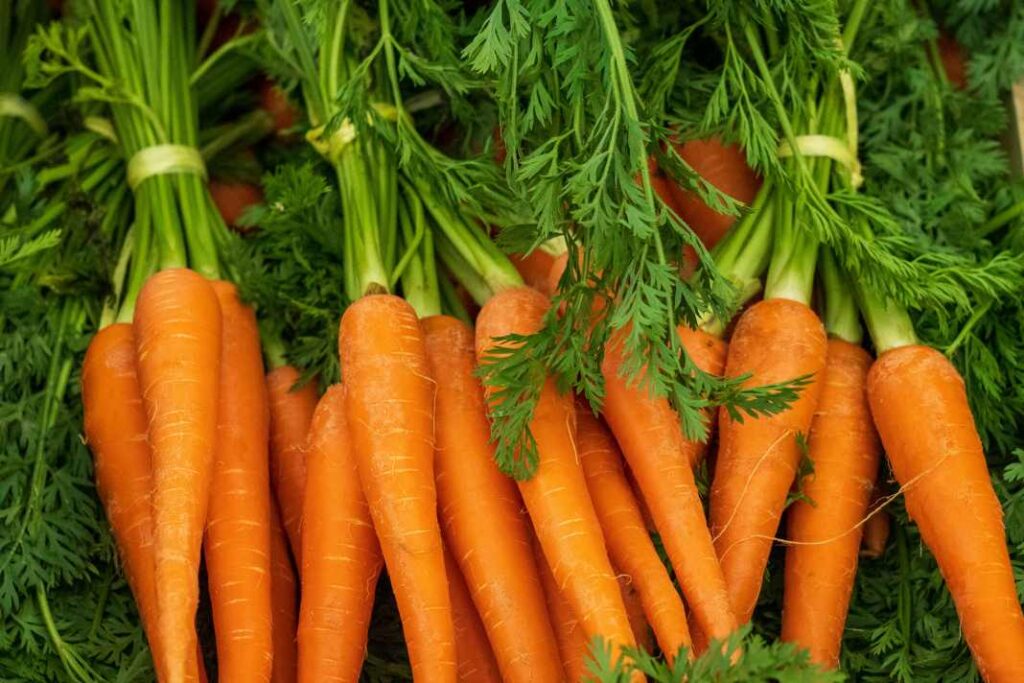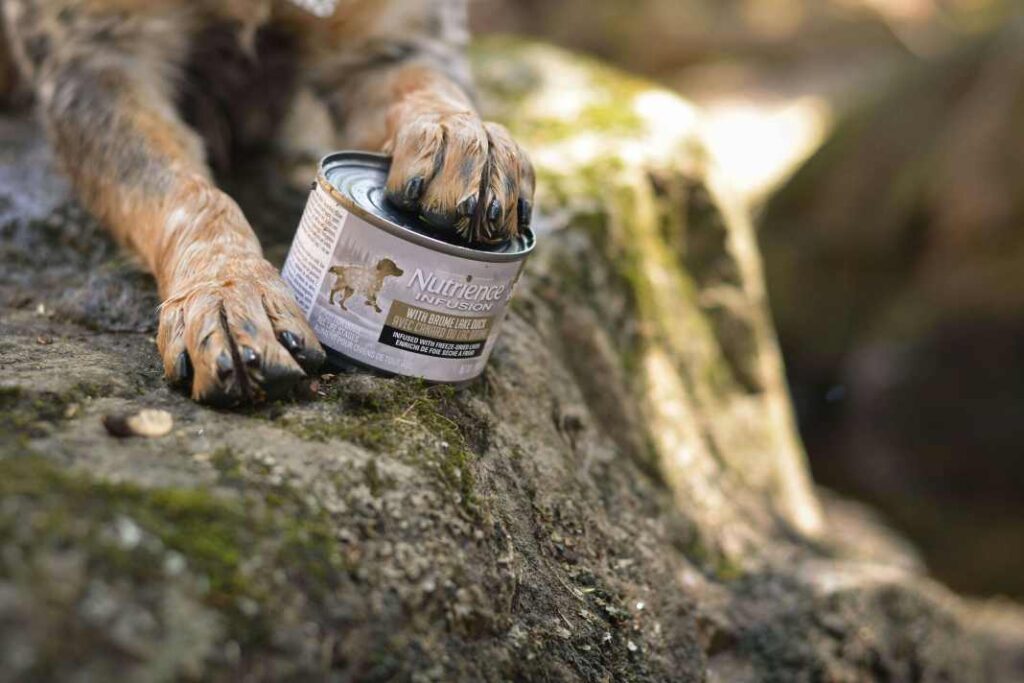Why Dogs Shouldnt Eat Like Humans: Let’s talk about why it’s not such a great idea for our furry friends to chow down on human food. This article dives into the importance of giving dogs the right nutrition, busting some common myths along the way. We’ll also share some expert tips to help you keep your pup healthy and happy.
Importance of a Balanced Diet for Dogs
A balanced diet for dogs consists of proteins, fats, carbohydrates, vitamins, and minerals in appropriate proportions. Proteins are essential for muscle growth and repair, while fats provide energy and support skin and coat health. Carbohydrates supply a source of energy, and vitamins and minerals play vital roles in various metabolic processes within a dog’s body. An imbalance in these nutrients can lead to nutritional deficiencies and health problems, affecting a dog’s overall well-being.
For instance, a common misconception is that grains are bad for dogs, but in reality, some grains can be beneficial when included in moderation and with proper quality control. Grains like rice and oats can provide essential nutrients and fiber to support a dog’s digestive health.
Additionally, debunking the myth that raw eggs can promote a shiny coat in dogs, it’s important to note that raw eggs may actually carry risks such as bacterial contamination, emphasizing the need for caution when incorporating human foods into a dog’s diet.
Ensuring that dogs receive a balanced diet is crucial for supporting their immune system, maintaining optimal energy levels, and promoting longevity. By providing dogs with the necessary nutrients in the right proportions, pet owners can help prevent nutritional imbalances and associated health issues, ultimately contributing to a healthier and happier life for their canine companions.

Importance of a Balanced Diet for Dogs
Ensuring a balanced diet for dogs goes beyond just providing them with food; it involves understanding the specific nutritional requirements tailored to their needs. Proteins are crucial for muscle development and repair, fats provide essential fatty acids necessary for healthy skin and coat, carbohydrates offer a source of energy, while vitamins and minerals play various roles in maintaining overall health.
For example, a deficiency in vitamin D can lead to skeletal issues in dogs, highlighting the importance of including a diverse range of nutrients in their diet to prevent such deficiencies.
A balanced diet for dogs prevents deficiencies and supports health, emphasizing proteins, fats, and essential vitamins.
In addition to preventing nutritional imbalances, a balanced diet is vital for supporting a dog’s immune system, helping them fight off infections and diseases effectively. By incorporating the right mix of nutrients, dog owners can contribute to their pet’s overall well-being and longevity.
For instance, omega-3 fatty acids found in fish can help reduce inflammation in dogs with arthritis, showcasing how specific nutrients can have a positive impact on a dog’s health when included in their diet in appropriate amounts.
Therefore, adhering to a balanced diet not only prevents health issues but also promotes the overall quality of life for dogs, making it a cornerstone of responsible pet ownership.
Debunking Common Dog Nutrition Myths
One prevalent myth in the realm of dog nutrition is the belief that pork is highly digestible and offers beneficial amino acids for dogs. While pork can indeed be a good protein source, it is essential to consider individual sensitivities and allergies that dogs may have to specific proteins, including pork.
Just like humans, dogs can have varying reactions to different types of protein sources, so it is crucial to monitor your dog’s response to pork before making it a staple in their diet.
Another common misconception revolves around the idea that lamb is hypoallergenic for dogs. Contrary to this belief, lamb being hypoallergenic is a myth, leading pet food manufacturers to explore other novel protein sources such as duck or bison in hypoallergenic dog food formulas.
Common myths in dog nutrition include pork’s digestibility and lamb’s hypoallergenic properties; individual dog responses vary. Raw eggs for coat shine also carry health risks.
It’s important for dog owners to understand that while certain proteins may be less common allergens, individual dogs can still develop sensitivities or allergies to any protein source, including lamb.
Furthermore, the notion that feeding raw eggs can result in a shinier coat for dogs is not entirely accurate. While eggs are a nutritious food for dogs and can contribute to a healthy coat due to their omega-3 fatty acids and biotin content, the shine of a dog’s coat is influenced by various factors such as overall health, grooming practices, and genetics.
Additionally, feeding raw eggs to dogs carries a risk of exposure to antibacterial-resistant E. Coli, emphasizing the importance of handling and preparing raw foods with caution to prevent potential health hazards for pets.
Common Risks of Feeding Dogs Human Food
It is crucial for dog owners to be aware of the potential risks associated with feeding their pets human food. While certain human foods are safe for dogs and can even be beneficial, it is equally important to recognize the harmful effects of specific items.
For instance, common household foods like chocolate, grapes, onions, and garlic are known to be toxic to dogs and should be strictly avoided to prevent any adverse health reactions.
These foods can lead to symptoms ranging from gastrointestinal upset to more severe conditions like organ failure, depending on the quantity ingested and the size of the dog.
Moreover, the habit of feeding dogs directly from the table may seem harmless but can have detrimental consequences on their health.
Feeding dogs human food can be risky; chocolate, grapes, onions, garlic are toxic and may cause health issues
Providing table scraps can contribute to weight gain and even obesity in dogs, as these foods are often high in calories and may lack the necessary nutrients for a balanced diet.
Additionally, this practice can lead to digestive issues and nutritional deficiencies, as human food may not cater to a dog’s specific dietary requirements. Sudden changes or irregular additions to a dog’s diet can upset their stomach and result in gastrointestinal disturbances.
Furthermore, foods high in fat pose a significant risk, as they can trigger pancreatitis in dogs, a severe inflammation of the pancreas that requires immediate veterinary intervention to prevent further complications.
It is essential for dog owners to exercise caution and mindfulness when considering sharing human food with their furry companions to safeguard their well-being and prevent any potential health issues in the long run.

Expert Recommendations for Dog Nutrition
When seeking guidance on dog nutrition, consulting with a nutrition expert can be highly beneficial for dog owners. These professionals can offer valuable insights into creating a well-rounded diet that meets the specific needs of individual dogs.
For example, a nutrition expert may recommend transitioning dogs to a species-appropriate diet that includes a balance of fresh meats and vegetables. This shift can lead to significant long-term health benefits, such as improved digestion, energy levels, and overall well-being.
Consulting nutrition experts and veterinarians can guide dog owners in tailoring diets for health and well-being.
Moreover, veterinarians play a crucial role in providing recommendations on pet nutrition. While their advice may vary based on different schools of thought, understanding these recommendations can help dog owners tailor their pet’s diet effectively.
For instance, while traditional veterinarians may suggest diets high in carbohydrates and sugars, integrative or holistic veterinarians may advocate for raw or homemade food options.
By acknowledging these differences and seeking expert opinions, dog owners can make informed decisions that promote their pet’s health and longevity.

Conclusion: Why Dogs Shouldnt Eat Like Humans
Ensuring optimal nutrition for dogs goes beyond simply feeding them; it involves providing a well-balanced diet that meets their specific needs and supports their overall health.
While myths may suggest that certain human foods are safe for dogs, it is essential to remember that not all foods suitable for humans are suitable for our canine companions.
For example, chocolate, grapes, onions, and garlic are toxic to dogs and can lead to severe health issues. By being aware of these dangers and sticking to a diet tailored to dogs, owners can prevent unnecessary risks to their pets’ well-being.
Moreover, seeking expert advice on dog nutrition can be invaluable in making informed decisions about what to feed our furry friends.
Ensuring optimal dog nutrition involves avoiding toxic human foods and consulting experts to tailor species-appropriate diets for health benefits.
Transitioning dogs to a species-appropriate diet, such as one rich in fresh meats and vegetables, can have long-lasting health benefits, including improved digestion, energy levels, and overall vitality.
Consulting with veterinarians or nutrition experts can help tailor a diet that suits the individual needs and preferences of each dog, ensuring they receive the necessary nutrients for optimal health and longevity.
By taking these steps and prioritizing proper nutrition, dog owners can contribute significantly to their pets’ happiness and well-being.
Meeting the Nutritional Needs of Dogs: A Guide to Age-Appropriate Feeding

Learn the significance of meeting the nutritional needs of dogs by providing age-appropriate food for puppies and adult dogs, ensuring optimal support for their growth, development, and overall health.
Continue reading: Meeting the Nutritional Needs of Dogs: A Guide to Age-Appropriate Feeding




